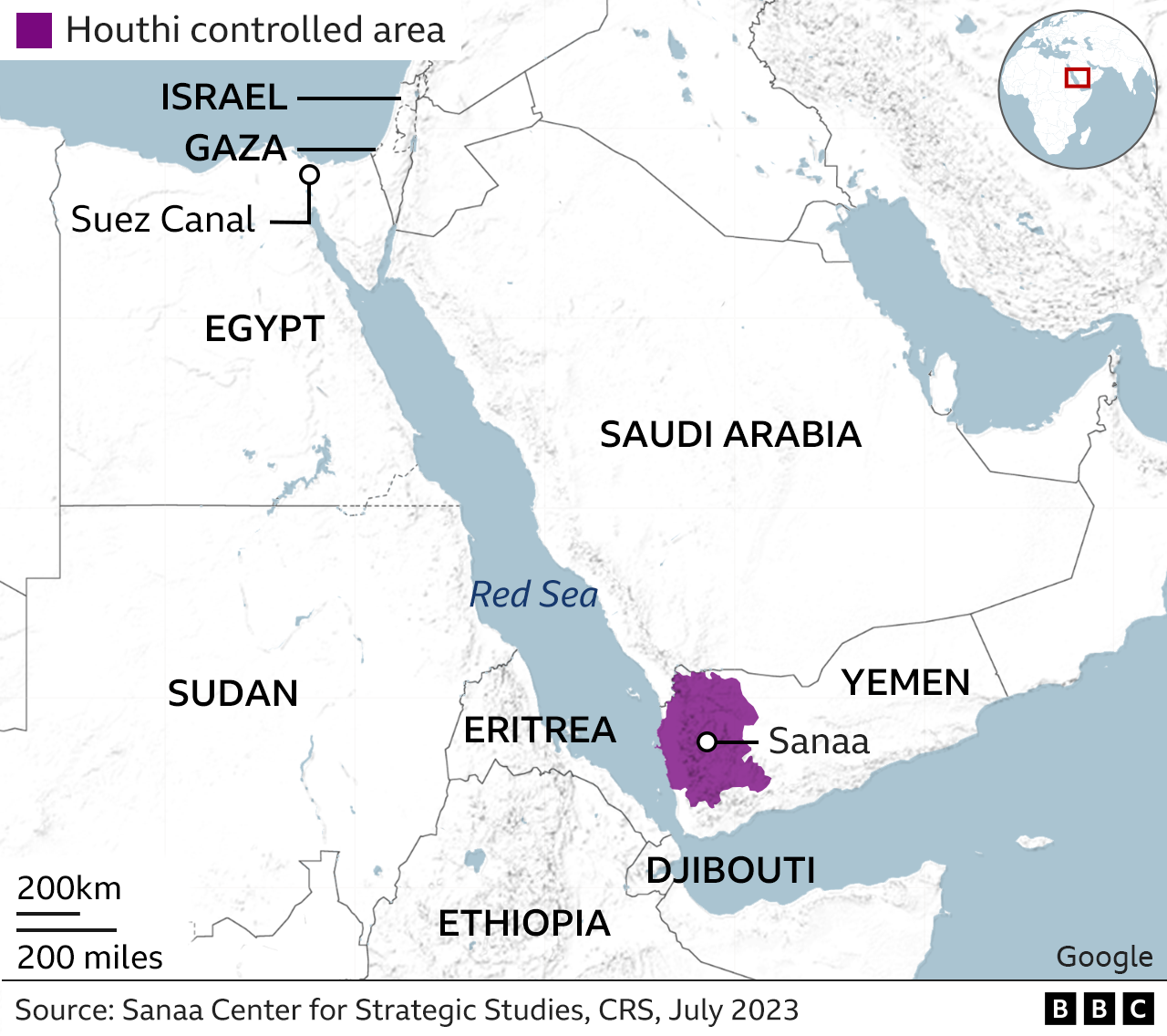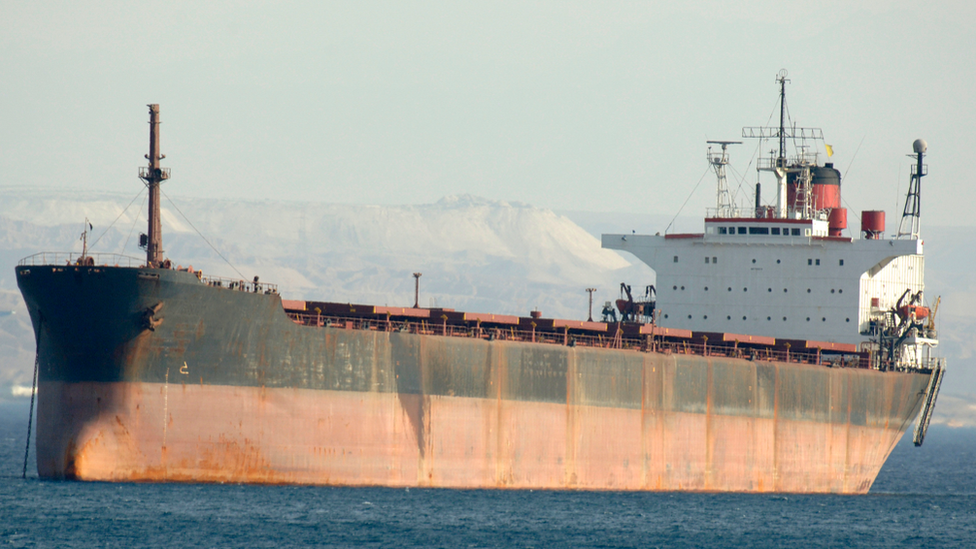Iran must tell Houthis to cease and desist, says Grant Shapps
- Published
Watch: US President vows retaliation against Houthis if attacks continue
The UK's defence secretary has told Iran to urge its proxies in the Middle East to "cease and desist" as the world is "running out of patience".
Grant Shapps singled out Yemen's Houthis and Lebanon's Hezbollah, both key allies of Tehran and supporters of Hamas.
The UK joined the US in launching airstrikes against Houthi targets in Yemen overnight on Thursday.
The Houthis have been attacking shipping in the Red Sea since November.
The Iranian-backed political and military group - who control a large part of Yemen - claims to be targeting ships in response to Israel's attacks on Gaza.
On Friday, US and British forces responded with air strikes on 16 targets in Houthi-controlled areas in Yemen, including logistical hubs, air defence systems and military depots. A follow-up strike was also carried out on Saturday, US officials said.
In an interview with the Daily Telegraph, external, Mr Shapps said Iran has a vital role to play in de-escalating Middle East tensions.
Asked about his message to the Iranian government Tehran, he said: "You must get the Houthi rebels, others who are acting as proxies for you, Lebanese Hezbollah are obvious examples, (and) some in Iraq and Syria, you must get these different organisations to cease and desist because we are, the world is, running out of patience.
"We see you, we see through what you're doing. We see how you're doing it, particularly the Houthi rebels, and no good can come from it."
Mr Shapps also argued the UK was "acting in self-defence" over the threat to container ships and an attack on Royal Navy destroyer HMS Diamond by a drone last month.
Hezbollah has been exchanging fire with Israel across the border with Lebanon since the Israeli military launched its campaign in response to the unprecedented Hamas attacks on southern Israel on 7 October.
Around 1,200 people were killed in Israel and 240 more kidnapped. Israel's retaliatory strikes and ground offensive in Gaza has since led to more than 23,000 people there being killed.
Iranian proxies in Syria and Iraq have also regularly been launching attacks on US military bases in the region since the war broke out.
Houthi attacks in the Red Sea increased 500% between November and December last year. The threat has become so great that major shipping companies have ceased sailing in the region and insurance costs have risen 10-fold since early December.
The International Chamber of Shipping says 20% of the world's container ships are now avoiding the Red Sea and using the much longer route around the southern tip of Africa instead.
Correction 13th February: This article wrongly reported that about 1,300 people had been killed following the 7th October attack by Hamas. This was based on counting those who later died from their injuries in addition to the figure of more than 1,200. The article has been amended to now refer to about 1,200 deaths, a figure which includes those deaths and which Israel says is not final.

Related topics
- Published12 January 2024

- Published12 January 2024
